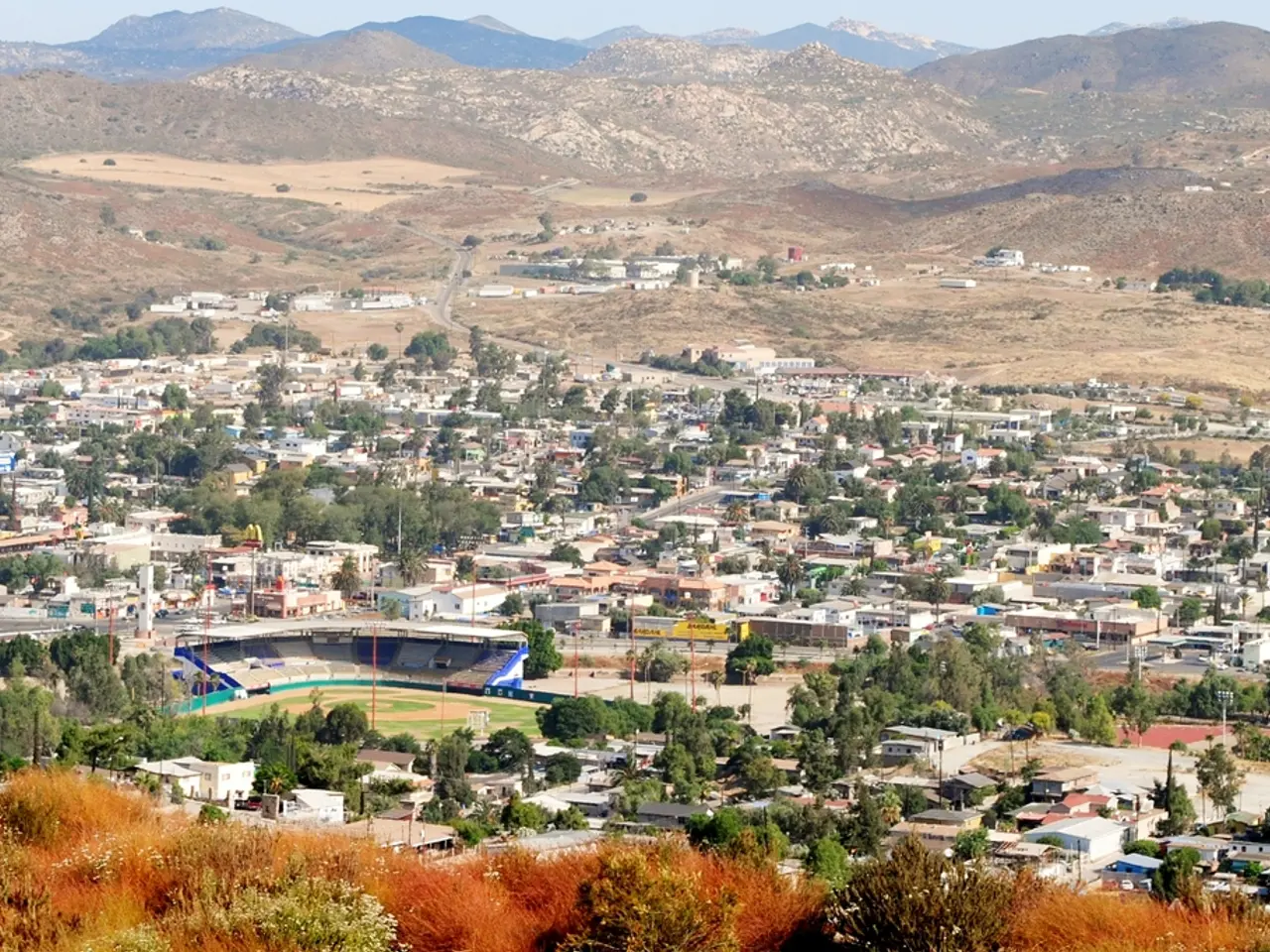Residents of Austin in Texas are segmented with residents in rural areas, located approximately 300 miles away, within the district boundaries set forth by the Republican Party of Texas.
In Texas, a proposed mid-decade redistricting bill is causing a stir, aiming to redraw congressional maps and potentially add five Republican-leaning seats. The bill, which could impact Central Texas and the 37th Congressional District, currently held by Democrat Rep. Lloyd Doggett, has sparked controversy and opposition from Democrats who view it as a partisan gerrymander.
Sherri Greenberg, the assistant dean for the LBJ School of Public Affairs at UT Austin, voiced concerns about the potential reshaping of the 37th District, stating that it could stretch across many miles, encompassing various cities, counties, communities, interests, topography, geography, and culture, thereby potentially affecting its partisan balance.
Republican state Rep. Carl Tepper, on the other hand, maintains that the new districts reflect the population and voting trends of Texas. Rural districts, due to their demographic similarities among voters, tend to be larger, a factor that could be leveraged in the proposed redistricting plan.
The proposed changes could dilute or eliminate districts where minority voters have elected Democrats in recent years, according to experts like Sherri Greenberg and David Wasserman. Wasserman, senior editor and elections analyst for The Cook Political Report, estimates that the proposed map could help Republicans pick up three to five additional seats in Texas by spreading out minority voters.
Democrats, including Rep. Doggett, have strongly opposed the plan. They fear losing key urban and minority districts, such as the 37th, reducing their chances to defend seats. The ongoing legislative fight has delayed the map's approval, with Texas House legislators fleeing the state to prevent Republicans from obtaining the quorum needed to pass the redistricting bill.
If the bill passes, the 37th District could be consumed by four neighboring districts, three of which are currently held by Republicans. This could lead to a showdown between Doggett and Rep. Greg Casar in Austin, as suggested by Wasserman.
Meanwhile, Republicans and Governor Abbott have vowed to continue special legislative sessions until the redistricting maps pass, despite Democratic opposition. If other states follow suit over the next few years, there could be constant redistricting every year, a scenario that concerns Greenberg, who served in the Texas House as a Democrat in the 1990s.
The proposed redistricting could have significant implications for the 2026 midterm elections. It could enable Republicans to increase their representation from Texas in Congress, potentially consolidating GOP power nationally. However, Democrats fear losing key urban and minority districts, reducing their chances to defend seats like the 37th.
The White House has approached Texas Republicans about redrawing the map ahead of the 2026 midterm elections to protect their fragile majority in the U.S. House of Representatives in Washington. Republicans are making the case in court that Hispanic voters no longer constitute a cohesive political group because they've migrated towards Donald Trump, which could weaken Democrats' argument that certain districts deserve protection.
As the debate continues, it's clear that the proposed redistricting bill in Texas is a contentious issue, with significant implications for the state's political landscape and the balance of power in Congress.
- The controversy over the proposed mid-decade redistricting bill in Texas highlights the politics of immigration and migration, as many believe it could impact districts with significant minority populations.
- The car accidents of Texas House legislators fleeing the state were a notable event in the polarized political landscape, aimed at preventing Republicans from obtaining the quorum needed to pass the redistricting bill.
- Amid the ongoing debate, General News outlets have reported on the fires of dissent between Democrats and Republicans, as disputes over policy-and-legislation are lead the headlines.
- As elections approach, Crime-and-Justice issues have also surfaced, with Democrats fearing a decline in representation for urban areas as a result of the redistricting plan.
- In a surprising twist, discussions about the proposed redistricting bill have intertwined with the world of sports, as some see parallels between the strategic maneuvering involved in American Football ( NFL or football) and the political tactics at play in redrawing district boundaries.
- Accusations of partisan gerrymandering have marred the debate, with Democrats alleging that the bill aims to create Republican-leaning seats and dilute the influence of minority voters.
- As the legal battle unfolds, war-and-conflicts remain a distant concern, but their impact on migration patterns could have far-reaching effects on future redistricting decisions.
- Meanwhile, policy-and-legislation on various topics, such as immigration, healthcare, and infrastructure, have taken a backseat as the high-stakes redistricting fight consumes the political sphere in Texas, with potential consequences for the balance of power on a national scale.




